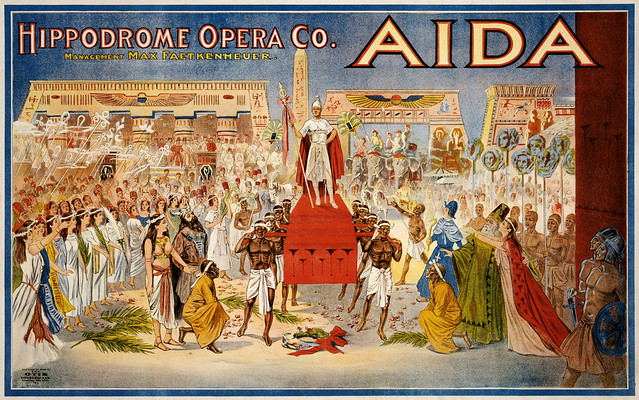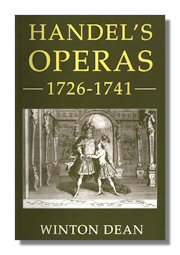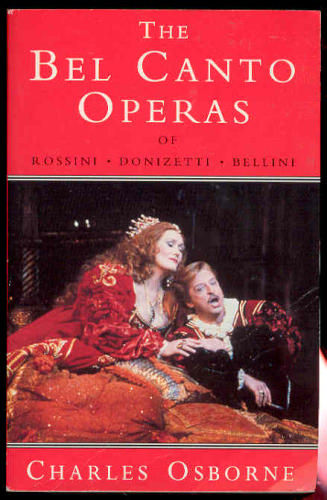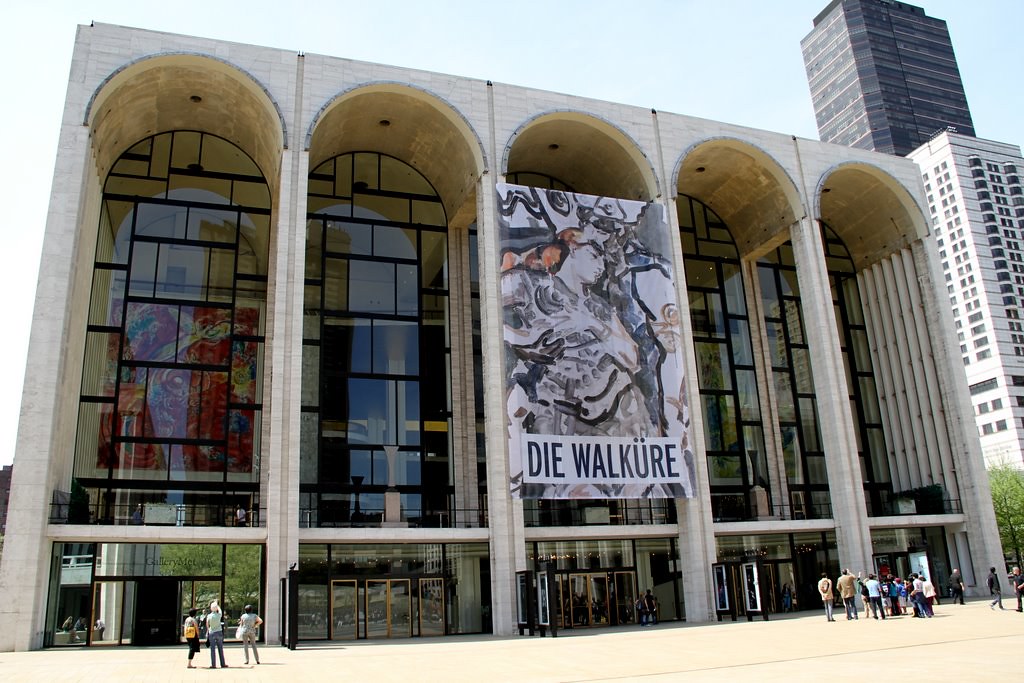Connect with the Libraries
Have an idea for Subject of the Month?
May 2014

Selectors: Steven Putt and Samantha Downes
This month's topic delves into the world of opera. The physical display, located on the first floor of the Purdy/Kresge Library, focuses on five important and prolific composers of opera. These composers are Wolfgang Amadeus Mozart, Gioachino Rossini, Richard Wagner, Giuseppe Verdi and Giacomo Puccini. This guide supplements with other important composers as well as videos of well-known arias and famous opera performers. We also hope that you take advantage of the Opera events that are happening in Detroit and are listed on this guide.
Featured Events in Detroit

Michigan Opera Theatre
1526 Broadway
Detroit, MI 48226
Sat May 10, 2014 7:30 pm
Wed May 14, 2014 7:30 pm
Fri May 16, 2014 7:30 pm
Sat May 17, 2014 7:30 pm
Sun May 18, 2014 2:30 pm
For more information, visit michiganopera.org
Featured Websites, May 2014
Featured Databases May 2014

-
Naxos Music Library This link opens in a new windowNaxos Music Library is the most comprehensive collection of classical music available online. It includes the complete Naxos, Marco Polo and Da Capo catalogues of over 75,000 tracks, including Classical music, Historical recordings, Jazz, World, Folk and Chinese music. Whilst listening, users can read notes on the works being played as well as biographical information on composers or artists in Naxos's extensive database
-
Oxford Music Online / Grove Music This link opens in a new windowIncludes the full text with ongoing updates of The new Grove dictionary of music and musicians, 2nd ed., The new Grove dictionary of opera, and The new Grove dictionary of jazz, 2nd ed.
-
RILM abstracts of music literature This link opens in a new windowOver 200,000 citations on international music corresponding to the printed RILM Abstracts of Music Literature. This file is produced by the Repertoire International de Litterature Musicale. It includes all data from the RILM printed year 1969 to the present.
Electronic Journals, May 2014

-
Cambridge Opera Journal2000-present
1989-2000 (Available through JSTOR) -
Opera News1988-present
-
Opera quarterly2002-present
1997-1999 (Available in ProQuest Research Library)
Great Composers of Opera

Wolfgang Amadeus Mozart (1756-1791)
The youngest child and only surviving son of Leopold Mozart, Wolfgang Amadeus was born in Salzburg in 1756, the publication year of his father’s influential treatise on violin playing. He showed early precocity both as a keyboard player and violinist, and soon turned his hand to composition. His obvious gifts were developed, along with those of his elder sister, under his father’s tutelage, and the family, through the indulgence of their then patron, the Archbishop of Salzburg, was able to travel abroad—specifically between 1763 and 1766, to Paris and to London. A series of other journeys followed, with important operatic commissions in Italy between 1771 and 1773. The following period proved disappointing to both father and son as the young Mozart grew to manhood and was irked by the lack of opportunity and lack of appreciation for his gifts in Salzburg, where a new archbishop was less sympathetic. A visit to Munich, Mannheim and Paris in 1777 and 1778 brought no substantial offer of other employment and by early 1779 Mozart was reinstated in Salzburg, now as court organist. Early in 1781 he had a commissioned opera, Idomeneo, staged in Munich for the Elector of Bavaria, and dissatisfaction after being summoned to attend his patron the Archbishop in Vienna led to his dismissal. Mozart spent the last 10 years of his life in precarious independence in Vienna, his material situation not improved by a marriage imprudent for one in his circumstances. Initial success with German and then Italian opera and a series of subscription concerts were followed by financial difficulties. In 1791 things seemed to have taken a turn for the better, despite a lack of interest from the successor to the Emperor Joseph II, who had died in 1790. In late November, however, Mozart became seriously ill and died in the small hours of 5 December. Mozart’s compositions were catalogued in the 19th century by Köchel, and they are now generally distinguished by the K. numbering from this catalogue.

Gioachino Rossini (1792-1868)
Rossini occupied an unrivalled position in the Italian musical world of his time, winning considerable success relatively early in his career. The son of a horn player and a mother who made a career for herself in opera, as a boy he had direct experience with operatic performance, both in the orchestra pit and on stage. His operas from his first relative success in 1810 until 1823 were first performed in Italy. There followed a period of success in Paris, leading to his final opera, Guillaume Tell (‘William Tell’), staged in Paris in 1829. The revolution of 1830 prevented the fulfillment of French royal commissions for the theatre, but in his later life he continued to enjoy considerable esteem—both in Paris, where he spent much of his last years, and in his native Italy. There he spent the years from 1837 to 1855, before returning finally to France, where he died in 1868. The last 40 years of his life were creatively silent: no more operas issued from his pen.

Richard Wagner (1813-1883)
Wagner was a remarkable innovator in both the harmony and structure of his work, stressing his own concept of the Gesamtkunstwerk, the ‘total work of art’, in which all the arts were brought together into a single unity. He was prepared to sacrifice his family and friends in the cause of his own music, and his overt anti-Semitism has attracted unwelcome attention to ideas that are remote from his real work as a musician. In the later part of his career Wagner enjoyed the support of King Ludwig II of Bavaria and was finally able to establish his own theatre and festival at the Bavarian town of Bayreuth. He developed the use of the leitmotif (in German Leitmotiv – ‘leading motif’) as a principle of musical unity, his dramatic musical structure depending on the interweaving of melodies or fragments of melody associated with characters, incidents or ideas in the drama. His prelude to the love tragedy Tristan und Isolde led to a new world of harmony.

Giuseppe Verdi (1813-1901)
Verdi dominated the world of Italian opera from his first considerable success in 1842 with Nabucco until his final Shakespearean operas Otello, staged at La Scala, Milan in 1887, and Falstaff, mounted at the same opera house in 1893. His career coincided with the rise of Italian nationalism and the unification of the country, causes with which he was openly associated.

Giacomo Puccini (1858-1924)
Descended from a family of musicians, Puccini was the most important Italian opera composer in the generation after Verdi. He was born and educated in Lucca, later studying under Ponchielli at the Milan Conservatory. He began his career as a composer of opera with Le Villi, on the story familiar from Adam’s ballet Giselle, but first won significant success in 1893 with Manon Lescaut. A musical dramatist of considerable power, if sometimes lacking in depth, he wrote 12 operas in total, the last, Turandot, still unfinished at the time of his death in 1924.
*All biographies courtesy of Naxos Music Library Database
Picture of the Display

Books from the Catalog about Opera
-
The Concise Oxford Dictionary of Opera by
Call Number: Purdy-Kresge Library ML102.O6 R67 1979ISBN: 0192800280Publication Date: 1996-05-23Derived from the full Oxford Dictionary of Opera, this is the most authoritative and up-to-date dictionary of opera available in paperback. Fully revised for this new edition, with over 3,500 entries, it is designed to be accessible to all those who enjoy opera, whether at the opera-house or on record. * Composers and their works * Singers and their notable performances * Plot summaries and separate entries for well-known roles, arias, and choruses * Leading conductors, producers, and designers * Opera companies and festivals -
 Handel's Operas, 1726-1741
by
Call Number: Purdy/Kresge Library ML 410 .H13 D373 2006ISBN: 1843832682Publication Date: 2006Handel ranks with Monteverdi, Mozart and Verdi among the supreme masters of opera, yet between 1754 (when Handel was still living) and 1920 not one of his operas was performed anywhere. Their revival in the modern theatre has been among the most remarkable phenomena in the history of the art. But they are still too little understood, or studied, and until recently no reliable modern editions existed. This long-awaited book is the sequel to Handel's Operas 1704-1726/, published in 1987. It is the first study in depth of Handel's last twenty-two operas, including major masterpieces such as Orlando, Ariodante and Alcinaand the brilliant lighter works Partenope, Serseand Imeneo. Each chapter contains a full synopsis and study of the libretto, a detailed assessment of the opera's musical and (often misunderstood) dramatic qualities, a performance history, and comparison of the different versions. Much new material has been incorporated. In addition four general chapters throw a vivid light on the historical background. Two Epilogues touch on Handel's dramatic vision, the revival of his operas in the twentieth century, and their performance today. There are a number of valuable Appendices. Together with its predecessor, the book provides the first complete overview of these works. WINTON DEAN is the most distinguished British authority on the life and work of Handel; he has also written extensively on opera in general.
Handel's Operas, 1726-1741
by
Call Number: Purdy/Kresge Library ML 410 .H13 D373 2006ISBN: 1843832682Publication Date: 2006Handel ranks with Monteverdi, Mozart and Verdi among the supreme masters of opera, yet between 1754 (when Handel was still living) and 1920 not one of his operas was performed anywhere. Their revival in the modern theatre has been among the most remarkable phenomena in the history of the art. But they are still too little understood, or studied, and until recently no reliable modern editions existed. This long-awaited book is the sequel to Handel's Operas 1704-1726/, published in 1987. It is the first study in depth of Handel's last twenty-two operas, including major masterpieces such as Orlando, Ariodante and Alcinaand the brilliant lighter works Partenope, Serseand Imeneo. Each chapter contains a full synopsis and study of the libretto, a detailed assessment of the opera's musical and (often misunderstood) dramatic qualities, a performance history, and comparison of the different versions. Much new material has been incorporated. In addition four general chapters throw a vivid light on the historical background. Two Epilogues touch on Handel's dramatic vision, the revival of his operas in the twentieth century, and their performance today. There are a number of valuable Appendices. Together with its predecessor, the book provides the first complete overview of these works. WINTON DEAN is the most distinguished British authority on the life and work of Handel; he has also written extensively on opera in general. -
 The New Kobbe's Opera Book
by
Call Number: Undergraduate Library MT 95 .K52 1997ISBN: 0399143327Publication Date: 1997The New Kobbeacute;'s Opera Book has been redesigned and extended; numerous entries have been completely rewritten, and the book now incorporates nearly two hundred new operas.Each of the nearly five hundred entries presents a full description of the work, plot synopsis, cast list, performance history, and other pertinent details. Many feature musical examples and photos. The revised edition includes important new operas, such as John Adams's Nixon in China and Harrison Birtwistle's Gawain, as well as long-forgotten or little-performed works currently undergoing revival.
The New Kobbe's Opera Book
by
Call Number: Undergraduate Library MT 95 .K52 1997ISBN: 0399143327Publication Date: 1997The New Kobbeacute;'s Opera Book has been redesigned and extended; numerous entries have been completely rewritten, and the book now incorporates nearly two hundred new operas.Each of the nearly five hundred entries presents a full description of the work, plot synopsis, cast list, performance history, and other pertinent details. Many feature musical examples and photos. The revised edition includes important new operas, such as John Adams's Nixon in China and Harrison Birtwistle's Gawain, as well as long-forgotten or little-performed works currently undergoing revival. -
 The Bel Canto Operas of Rossini, Donizetti and Bellini.
by
Call Number: Purdy/Kresge Library ML 1733.4 .O8 1994ISBN: 0931340713Publication Date: 1994The author treats each of Rossini's 39 operas, Donizetti's 66, and Bellini's 10, discussing the libretto and the circumstances of each opera's first performance, outlining the plot, and ending with an analysis of the music.
The Bel Canto Operas of Rossini, Donizetti and Bellini.
by
Call Number: Purdy/Kresge Library ML 1733.4 .O8 1994ISBN: 0931340713Publication Date: 1994The author treats each of Rossini's 39 operas, Donizetti's 66, and Bellini's 10, discussing the libretto and the circumstances of each opera's first performance, outlining the plot, and ending with an analysis of the music. -
Callas: Portrait of a Prima Donna. by
Call Number: Purdy/Kresge Library ML420.C18 J4 1986ISBN: 0486250474Publication Date: 1986Renowned commentator chronicles life and career of the most controversial, fascinating, influential operatic personality of our time. Extraordinary story of the legendary diva's struggles and triumphs available for the first time in paperback. Features 64 photos of Callas in her personal life and in famous roles. New introduction and epilogue by George Jellinek. -
 Lily Pons : a centennial portrait
by
Call Number: Purdy/Kresge Library ML 420 .P82 L5 1999ISBN: 1574670476Publication Date: 1999The popular opera star Lily Pons (1898-1976) was the reigning coloratura at the Metropolitan Opera from 1931 to 1959, and her career included several Hollywood films. She was as beautiful and charming as she was talented a combination that made her a true celebrity. This collection brings together the impressions of colleagues, critics and scholars about this much-beloved diva, with more than 100 rare photographs from Lily Pons' own archives, largely owned by Ludecke and her family.
Lily Pons : a centennial portrait
by
Call Number: Purdy/Kresge Library ML 420 .P82 L5 1999ISBN: 1574670476Publication Date: 1999The popular opera star Lily Pons (1898-1976) was the reigning coloratura at the Metropolitan Opera from 1931 to 1959, and her career included several Hollywood films. She was as beautiful and charming as she was talented a combination that made her a true celebrity. This collection brings together the impressions of colleagues, critics and scholars about this much-beloved diva, with more than 100 rare photographs from Lily Pons' own archives, largely owned by Ludecke and her family.
Famous Opera Singers & Arias
Diana Damrau (1971-) coloratura soprano
"Der Hölle Rache kocht in meinem Herzen" from Die Zauberflöte, K. 620 by W. A. Mozart (1756-1791)
Maria Callas (1923-1977) soprano, known for bel canto style
"Una voce poco fa" from Il barbiere di Siviglia, ossia L'inutile precauzione by Gioachino Rossini (1792-1868)
One of the most famous pieces by Wagner.
"Walkürenritt" or "The Ride of the Valkyries" from Die Walküre, the second of four operas in the cycle Der Ring des Nibelungen by Richard Wagner (1813-1883)
Juan Diego Flórez (1973-) tenor, known for his bel canto and coloratura
"La donna è mobile" from Rigoletto by Giuseppe Verdi (1813-1901)
Luciano Pavarotti (1935-2007) tenor, one of the commercially successful tenors of all time
"Nessun Dorma" from Turandot by Giacomo Puccini (1858-1924)
